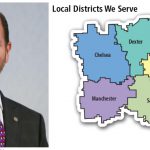Given the intransigence of the Freedom Caucus in the House, it seems likely that we may see the return of the “debt ceiling” or “debt limit” to news headlines this year. Here’s a stripped-down summary of the concept; there’s a lot more detail available from Wikipedia, of course, but this should save you some digging.
What Is It?
The debt limit is a legislative restriction on the total amount of debt that the US federal government can issue. There are a few countries around the world that have them, but the American version was created by the Public Debt Acts of 1939 and 1941. As a result of those laws, Congress must approve raising the limit if the Treasury needs to issue debt in excess of the limit in order to pay the federal government’s bills.
The most important fact to understand is that issuing debt is a separate process from passing legislation that authorizes spending money. This means Congress can pass laws that will require more debt, and then refuse to allow the Treasury to issue the necessary debt. If this occurs, the Treasury will eventually run out of money to pay bills, running from debt service, to payments to contractors, to public employee paychecks, to Social Security payments.
Does It Really Matter?
The debt limit became a front-line political concern in 2011, when the Republican majority in House threatened to not raise the debt limit as a means of bargaining for substantial deficit reduction policies. In mid-April 2011, just after the 2011 fiscal year budget was finally passed, the debt limit was officially reached, and Treasury Secretary Timothy Geithner suspended issuance of new debt and initiated what he termed “extraordinary measures” to continue paying the government’s bills, largely borrowing money from various trust funds (which would be replenished after new funds became available). Most of these tactics had been used in previous years and decades as the debt limit was approached, but in this case the suspension on issuing debt stretched until just a few days prior to the date after which the Treasury would run out of money entirely.
The political impasse was resolved by the Budget Control Act of 2011, which set the stage for the next crisis in 2013. The BCA set up the infamous “sequester”, intended as something of as a Mutually Assured Destruction for the budget process. If Congress failed to pass a budget with $1.2 trillion in savings over 10 years by the beginning of 2013, the sequester would impose nearly a decade of automatic across-the-board budget cuts to both defense and non-defense spending. The fight over how to achieve those mandated cuts lead, of course, to another debt limit impasse and another resort to “extraordinary measures” by the Treasury, and in the end the sequester went into effect, the consequences of which we’re still feeling to this day.
Is It Constitutional?
There is some question as to whether the legislation establishing the debt limit is constitutional. Section 4 of the of the 14th Amendment reads in part:
“The validity of the public debt of the United States, authorized by law, including debts incurred for payment of pensions and bounties for services in suppressing insurrection or rebellion, shall not be questioned…”
Since the debt limit can force a default by the Treasury on debt payments, one can make the case that it directly undermines the validity of that debt. As of this writing, the argument has been tested, and at the moment there are no signs it will be in upcoming months.
Do We Have to Keep It?
How hard would it be to eliminate these recurring debt ceiling crises? Back in 1979 Dick Gephardt imposed a parliamentary rule in the House to the effect that any legislation which required additional debt automatically authorized it. Peace and tranquility reigned until the rule was repealed in 1995 by the new Republican majority under Newt Gingrich. Why in heaven’s name would you they do that, I hear you ask? That’s a story for another day (and article).
David is one of the earliest writers for Torchlight, and also pinch hits on website support and editing/posting. He holds a PhD in Economics, which with $5 would get him a latte; sadly, he doesn’t even like coffee. He can be reached at dspitzley@torchlightmedia.net.


